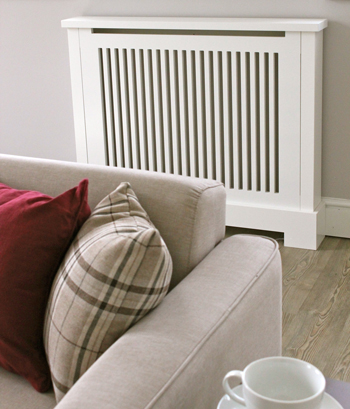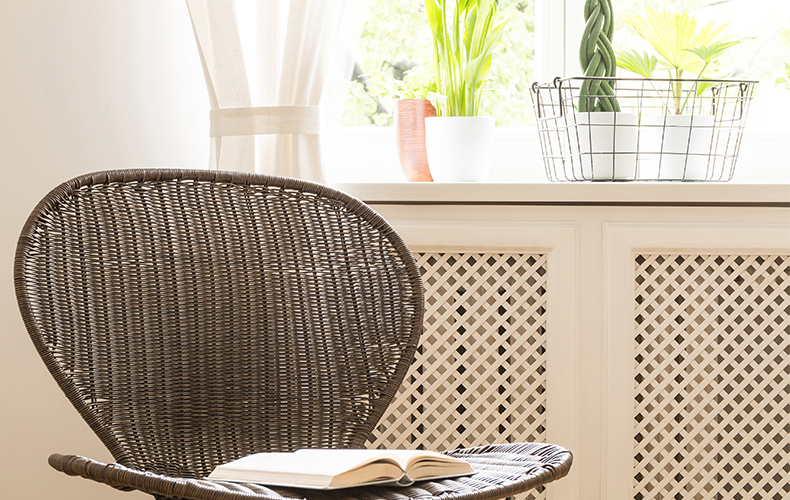Not known Details About Radiator Covers
Table of ContentsRadiator Covers Things To Know Before You BuyUnknown Facts About Radiator CoversWhat Does Radiator Covers Do?The Of Radiator CoversThe Best Guide To Radiator CoversSome Known Incorrect Statements About Radiator Covers
Over at the Old Residence Web, Amy Hayden covered Five Advantages to Making Use Of Radiator Covers. This has begun a little bit of a discussion: Are rad covers helpful or do they lose power? Hayden composed, "Radiators are a great resource of warm, yet they likewise take up useful square footage ...They may be called radiators, however they must most likely be called convectors, given that the bulk of the warmth that we obtain from a standard rad is moved by convection. In convection, air warmed between the fins of the radiator climbs to the ceiling and is bossed around the room in a circle.
The smart Trick of Radiator Covers That Nobody is Talking About
Hayden wrote, "Radiator covers with the appropriate backing can distribute warm extra efficiently than an uncovered radiator. Rather than the warmth going directly to the ceiling, the back enables it to be pressed right into the space." Lloyd Alter It holds true that radiators ought to have a correct reflective support; I use foil-faced bubble cover insulation; it mirrors a little of the radiated warmth that would have been soaked up by the wall surface back into the room and the radiator.
Radiator covers can be useful in older buildings developed after the flu epidemic of 1918 - radiator covers. After that, as is the situation now, health and wellness authorities thought that fresh air was the way to avoid getting conditions and that people ought to rest with open home windows. Dan Holohan writes in "The Lost Art of Vapor Heating" that in New York City City, the Board of Health got that windows need to stay open constantly, and the radiators were made to keep structures warm on the coldest day of the year with the home windows open
The smart Trick of Radiator Covers That Nobody is Talking About
Some radiators, like copper finned modern-day rads, featured essential covers, commonly with dampers to readjust the convection; they, like steam rads, need covers since they are as well warm to touch. Yet for a traditional cast iron rad that one discovers in old homes, attached to a hydronic system, a cover isn't needed for security.
, Holohan noted that some radiators can obtain dangerously warm. He defined a claim where a kid rolled off the bed and got stuck between the radiator and the bed and experienced severe burns.
As a typical heating home appliance, radiators are not there simply to look pretty but to maintain your home warm utilizing natural convection. However, with even more emphasis on interior decoration, these home appliances can prove unattractive and distract from the rest of the meticulously outlined aesthetic appeals of a room. To straighten a radiator to the design of the remainder of your room, you can cover one up though this does feature implications for the home heating.
A radiator cover is essentially a method of concealing a radiator to obscure it from sight. They generally can be found in two products, timber and galvanised steel. Timber is thought about one of the most common product for a radiator cover as it merely looks much better. This is although that timber is not a great conductor of warm yet it is good for childproofing so is excellent for a young family.
4 Easy Facts About Radiator Covers Shown

Not only can they childproof the home appliance and add an aesthetically pleasing style, yet a radiator cover can also add added storage space, especially in the washroom. With a flat surface area, you ought to be able to keep soaps and scents to maintain them within very easy reach. By repurposing the room, the her comment is here radiator cover can come to be a makeshift mantelpiece.
That is certainly the case with radiator covers and they can limit the efficiency of your central home heating system. By disrupting the circulation of cozy air and the all-natural convection, you can endure warm loss and reach for the thermostat when you actually should not need to. Efficiently, a radiator cover can cost you cash by excessively spending on heating you are not taking pleasure in.
The smart Trick of Radiator Covers That Nobody is Discussing
These consist of hemorrhaging the radiators, using reflective backing, and maintaining a void for the radiator. Most houses should be bleeding their radiators at the very least yearly. The task assists to eliminate any kind of Click This Link trapped air which might be protecting against the warm water from navigating the appliance. It additionally just takes a min or so to bleed a radiator and is a fail-safe method to enhance its efficiency.
Radiators function by natural convection, as cold air sinks to the bottom of the wall, it enters call with the radiator after that warms up and increases as the air comes to be less dense. The warm air properly warms up a room. Nevertheless, if you were to put things beside the radiator, such as a sofa, or surround one with a radiator cover, after that this would interfere with the all-natural convection and you would not have the ability to really feel the full benefits of the heating.
Radiator covers may be a good choice additional hints if you have little ones running about and need a method of stopping them from burning themselves on the hot surface. While a cover should look excellent to hide a radiator, any type of product that obstructs a home heating device will lower its performance. To give a total style, the radiator cover must go over the valves, in addition to the heater and pipelines.
Radiator Covers Can Be Fun For Everyone

And thats my inquiry: how do I tackle determining if my radiators should have covers? I have a close friend that thinks the concern is straightforward: a cover catches the warmth, so getting rid of the cover will certainly permit the warmth to far better go into the space and will make the radiator much more effective.
And thats my question: just how do I deal with identifying if my radiators should have covers? I have a close friend that thinks the problem is easy: a cover traps the warmth, so getting rid of the cover will allow the heat to far better get in the space and will make the radiator much more efficient.
And thats my inquiry: exactly how do I tackle figuring out if my radiators should have covers? I have a friend that believes the concern is basic: a cover traps the heat, so getting rid of the cover will permit the warm to better get in the space and will make the radiator extra effective.